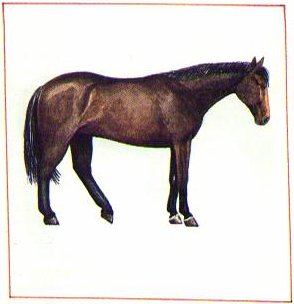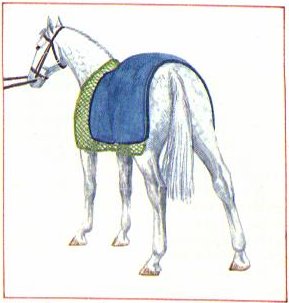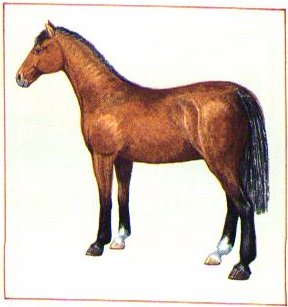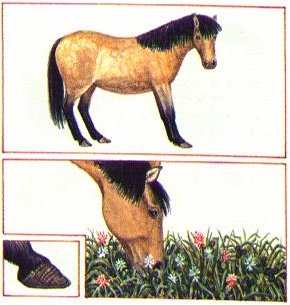Bulk foods keep a horse's digestive system in running order, and concentrated foods build muscle and provide energy The right balance is vital.
Avoid working a horse hard on too much bulk: it strains his lungs and heart, as well as his legs. Too much grain in relation to work, on any one day, can cause indigestion (a serious problem in horses) and chemical changes which can lead to colic, azoturia, lymphangitis, and laminitis. in most cases, a laxative should ease the symptoms, but seek veterinary help.
The benefits of good feeding will be lost unless the horse's teeth are in good condition to chew it properly and unless he is wormed regularly every six to eight weeks. Worms eat his food and get into the bloodstream, causing 1055 of weight and anaemia. Damage to the bowel, and in bad cases, his liver, lungs and blood vessels, can be serious and long-term.
A horse is said to be in good condition if flesh covers his bones and his coat shines. He is in show condition when he carries more fat and looks rounded and glossy. A muscled-up horse with no spare flesh or fat, is in fit condition; but a thin horse with wasted muscles is in poor condition.
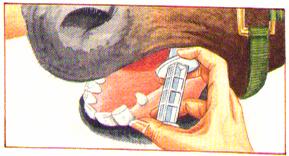
A 'wormy', horse loses condition, has a dry, staring coat and sometimes a pot-belly. Worm doses are given as paste (as shown), or in powder form added to a feed.
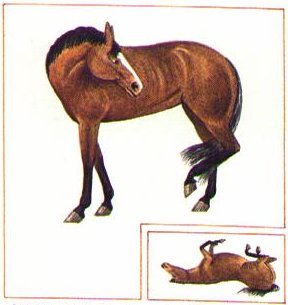
Colic is acute indigestion, often due to over-feeding, eating unsuitable food, a sudden change of diet, water after feeding, or too much cold water when hot.
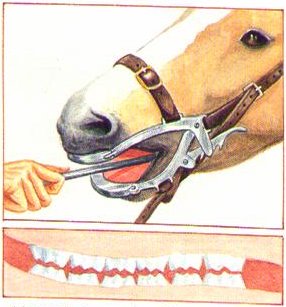
A horse's teeth grow throughout his life. They must be checked at least once every year by a vet, farrier, or specialist horse dentist, to rasp away sharp edges.
